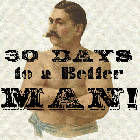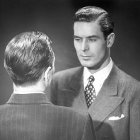1) What hormone does stress activate in us?
2) What does cortisol specifically make you crave?
3)What are three ways to decrease cortisol?
4) How does less than 8 hours of sleep affect you physically?
5) What are three ways to improve your sleep?
****NOTE: Mr. Rojas personally believes that grains, even whole wheat grains, are detrimental to health and SHOULD NOT BE EATEN REGULARLY unless you are extremely active (like training to run a marathon).
6) What is a tip to improve your eating?
7) What is one way to combine "cardio" and weight training at the same time? TIP... we use them in Health class almost every day!
http://www.prevention.com/weight-loss/weight-loss-tips/how-your-hormones-affect-your-weight

How Your Hormones Affect Your Weight
Turn On Your Weight Loss Hormones
Banish your "bad" hormones, and crank up your "good" hormones with this 4-week plan
Whether it's your period, menopause, stress, a hysterectomy, or plain old heredity, women have felt vulnerable to hormonal cravings and sluggish metabolisms for years, with little to prove it but instinct. Now science is uncovering several bona fide links between female hormones, hunger, weight loss and fat metabolism. And in fact, evidence suggests that taking advantage of female hormones—mechanisms already in place in your molecular biology—may help you to manage your weight, shape, and appetite.
What follows is a female hormone-harmonizing plan, based on the latest data, that may be worth trying if you've had trouble with weight loss in the past. Each week, you'll learn a new way to keep the levels of "snacking" female hormones from inching up into the danger zone or to encourage the levels of "feel good" female hormones to rise. Naturally. Now that's something to be thankful for!
Week 1: Chill Out
If you're like many people, you've got a demanding job, a family who needs you, and a never-ending to-do list. No wonder you feel tired or depressed, anxious or irritable. Or perhaps you can't sleep (although you have no problem eating).
All are hallmark symptoms of chronic stress. Stress activates the fight-or-flight response, the body's involuntary response to a threat that makes our hearts pound and our breath shorten. Chief among the hormones released during this response is the stress hormone cortisol.
More from Prevention: 5 Solutions To Thrive Under Stress
Cortisol automatically kicks up your appetite, prompting you not only to want to eat huge quantities but especially to want sweets and simple carbohydrates-foods that make insulin levels spike and then plummet, which may leave you feeling hungrier than ever-and eating again, says Prevention advisor Pamela Peeke, MD, assistant clinical professor of medicine at the University of Maryland School of Medicine in Baltimore and author of Fight Fat After Forty. "Stress fat" is also concentrated in the last place you need it: deep in your tummy.
To help reset your internal stress-o-meter to normal levels, and perhaps reduce stress-related hormonal cravings, experts recommend the following strategies:
Put magic photos in your "stress zones." Clip to your visor a photo from your anniversary trip to Hawaii to calm you when you're stuck in traffic. Place in your work area beautifully framed pictures of your children.
Excerpted from The Hormone Connection by Gale Maleskey, Mary Kittel, and the editors of Prevention.
Talk some "calming sense" into yourself. Silently repeat a soothing word or phrase, such as "peace," while taking slow, deep breaths through your nose. (Too busy to meditate? Here's how to sneak some mindulness in.)
Schedule regular play periods into your appointment book. Whether it's piecing together a 1,000-piece puzzle or sledding with your kids, play distracts us from our worries, providing a temporary refuge from stress.
Laugh. In one study conducted at the Loma Linda University's Center for Neuroimmunology in California, a group of men who watched a humorous video were shown to have 30% less cortisol in their blood and significantly lower levels of another stress hormone, epinephrine, during and after the tape compared with a group that sat quietly. Lighten up your commute with a cassette or CD of your favorite comedian or a humorous book on tape. Watch out for funny newspaper headlines or ads. And, of course, watch movies that make you laugh.
Get a massage. Deep-pressure massage stimulates the nerves that cause our levels of the stress hormones cortisol and epinephrine to go down, while the levels of two mood-regulating brain chemicals that act like the hormones serotonin and dopamine rise. This was true in studies of breast cancer patients, conducted at the Touch Research Institute at the University of Miami School of Medicine, and of women with fibromyalgia and chronic fatigue syndrome. Both groups reported reduced anxiety and depression and improved mood and quality of life. Research has also shown that folks who give a massage reduce their own levels of stress hormones.
Week 2: Get a Good Night's Rest
Besides making you cranky, one theory is that sleep loss (less than 8 hours of sleep a night) may contribute to weight gain by dramatically disrupting the female hormones that control your eating habits and your metabolism.
In one small study, researchers in the University of Chicago's department of medicine compared the hormone levels of 11 men while they got 8 hours of sleep for several nights, followed by several nights of a mere 4 hours in bed. During the sleep-debt stage, the men's ability to process glucose was impaired as much as a person with type 2 diabetes—indicating that sleep debt could lead to insulin resistance, a condition some experts think encourages obesity. In all the afternoons that followed a sleep-deprived night, the men also had consistently elevated levels of cortisol, which encourages your cells to store more fat, particularly when paired with insulin resistance. Not to mention the fact that levels of thyroid hormone, the metabolism powerhouse, were lowered during sleep deprivation.
Whether you have trouble falling or staying asleep, these expert tips should help:
Get outside. The release of hormones in your brain is regulated by the nerve impulses sent by your retinas in response to light. In other words, living by the earth's natural cycle of light and darkness keeps your serotonin and cortisol at their proper levels. Getting at least 30 minutes of natural light a day helps reset our inner alarm clocks, so we'll want to fall asleep at the right time, says Joyce Walsleben, PhD, director of the Sleep Disorders Center at New York University in New York City and author of A Woman's Guide to Sleep: Guaranteed Solutions for a Good Night's Rest.
Take a walk. In one study of more than 700 people, those who took daily walks were one-third less likely to have trouble sleeping until their normal wake-up time. Those who walked briskly slashed the risk of any sleep disorder by half. Regular exercise alleviates stress and also raises body temperature, which primes us for slumber. (See how to get the most out of your walk with Power Walking.)
Reduce or eliminate stimulants, such as caffeinated coffee, tea, soda, chocolate, and nicotine before bed. Also, avoid alcohol, which is sedating but disrupts sleep.
Make your bedroom dark. Darkness stimulates the production of melatonin, a light-sensitive hormone produced by the pineal gland, which is located in the brain. Some evidence suggests that supplementing with this hormone can help remedy insomnia. (Take only temporarily under the supervision of a knowledgeable medical doctor.) To manipulate this hormone naturally, invest in thick, heavy curtains, or simply don an eye mask.
Week 3: Eat Right
A healthy diet can have a dramatically positive effect on female hormone levels. The basic plan? A diet that's loaded with whole grains, fresh fruits and vegetables, low-fat or fat-free dairy products, and that contains less red meat and processed foods.
For one thing, a high-fiber diet can help keep your blood sugar levels stable. Otherwise, foods made with refined grains, such as white bread, white pasta, and white rice are digested quickly and speeded into the bloodstream as the body's primary source of fuel: blood sugar. This rapid breakdown triggers a flood of insulin, the hormone that ferries the sugar into the cells. Shortly thereafter, blood sugar levels drop precipitously, which signals the adrenal glands to release more cortisol. By contrast, beans, brown rice, and whole grain cereals take much longer to digest. So insulin levels rise gradually, blood sugar levels remain steady, and cortisol levels don't skyrocket.
Here are some other tips to trick your weight loss hormones with food:
Have "mini-meals." Instead of eating three big meals a day-plus random snacks-eat five or six smaller meals spaced out evenly throughout the day. Keep each meal between 250 and 350 calories. "By eating smaller yet more frequent meals, with correct proportions of proteins, fats, and carbohydrates, you may be manipulating your hormones in favor of reaching the weight you want," says Geoffrey Redmond, MD, director of the Hormone Center of New York in New York City and author of The Good News about Women's Hormones.
Here are theories about why mini-meals work:
- Spreading small calorie loads throughout the course of a day may trigger growth hormone, which helps keep your body's metabolism efficient-and burning calories.
- The closer that one small meal is to the next, the less your glucose levels will soar, which means lower insulin on a regular basis.
Make breakfast a must. It is the "single greatest factor in maintaining portion control and stable hormone levels throughout the day," says Dr. Redmond.
Begin with a protein "appetizer" 10 minutes before each meal. It's possible that doing this sends your body the right signals not to overeat, since protein stimulates the production of the appetite-regulating hormones cholecystokinin and glucagon. Have string cheese or a very small handful of nuts before you sit down to dine.
Forget fat-free foods. Compare labels of fat-free treats with their full-fat versions, and you're likely to find that, in many cases, the calories of fat-free foods are as high or actually higher. That's because sugar and other quickly digested simple carbohydrates are used to make up for the fat-based ingredients. Getting your blood sugar off track can boomerang by making you hungrier in a little while.
More from Prevention: Diet Foods That Sabotage Weight Loss
Week 4: Move that Body
Lacing up your sneakers is virtually a call to action for the weight loss hormones that reverse fat storage and curb eating. "Your muscles are loaded with insulin receptors," says Christiane Northrup, MD, author of Women's Bodies, Women's Wisdom and The Wisdom of Menopause. "The more muscle mass you have and the more heat you generate from your muscles on a regular basis, the more efficiently you'll use insulin and burn carbohydrates and body fat."
There's strong evidence that moderate exercise—a brisk walk, a 45-minute "date" with the Nautilus machines—also triggers the release of "pleasure chemicals" known as endorphins. Finally, working up a good sweat also activates the "feel good" neurotransmitters dopamine and serotonin, which reduce the symptoms of depression.
Your basic exercise plan is as follows:
Get your heart pumping. Prevention recommends 30 minutes of moderate activity, such as brisk walking or bicycling, at least five times a week for fitness. Or, 45 to 60 minutes of moderate activity at least five times a week for weight loss. Before starting any exercise program, talk with your doctor.
Lift weights. Muscles are your calorie-burning furnace, so the better you maintain them, the higher you keep your metabolic rate. "Weight training is essential for women over 40 to compensate for the decreased muscle mass from falling hormones," says Dr. Peeke. (Here's why you should start lifting weights today.)
Prevent the PMS Munchies
If out-of-control cravings drive you to the cookie jar every month, here's what you can do to avoid packing on extra pounds over the long haul:
First, realize that it's normal to experience food cravings around the time of your period, says Prevention advisor Pamela Peeke, MD, MPH. The menstrual cycle delivers a double whammy of two different female hormone groups increasing at the same time: sex hormones (estrogen and progesterone) and stress hormones (cortisol and epinephrine). Some say that the neurotransmitter serotonin also fluctuates with your monthly cycle. These changes drive up your appetite and prompt you to eat the kind of foods that increase your insulin levels.
To minimize the munchies, here's what Dr. Peeke recommends:
- Eat a little more protein, such as an egg or a cup of beans, at every meal when you have PMS to help prevent wild cravings, Dr. Peeke says, "because protein can give you an exquisite sense of satisfaction."
- Get your calcium (the recommended Daily Value of 1,000 mg a day from food and supplements). Research shows that it works to reduce PMS cravings.
- Exercise, no matter how bad you feel. The aerobic charge will dampen your appetite.
Published November 2011, Prevention | Updated October 2012
http://www.prevention.com/weight-loss/weight-loss-tips/how-your-hormones-affect-your-weight
Read more: http://www.prevention.com/print/23958#ixzz2MCyIozSV

 30 Days to a Better Man-Day 4: Increase Your Testosterone
30 Days to a Better Man-Day 4: Increase Your Testosterone 5 Ways Strength Training Will Make You Man Up
5 Ways Strength Training Will Make You Man Up 30 Days to a Better Man Wrap-Up
30 Days to a Better Man Wrap-Up Look ‘Em in the Eye: Part I -The Importance of Eye Contact
Look ‘Em in the Eye: Part I -The Importance of Eye Contact




 Like
Like